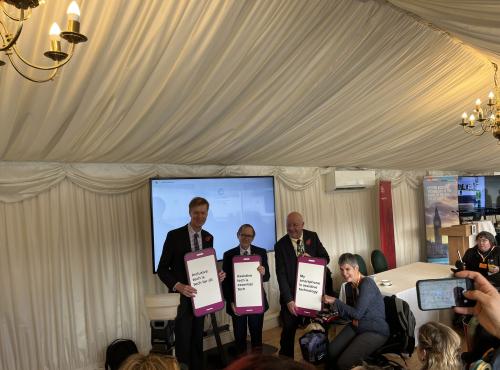APDIG host roundtable on redesigning youth futures
The All-Party Parliamentary Design and Innovation Group were delighted to host an online roundtable to discuss the findings of the ‘Redesign Youth Futures’ initiative, a collaboration between the University of the Arts London, Reprezent, and other project partners and stakeholders.
The Design Against Crime Research Centre (DACRC) was founded in 1999 at University of the Arts London and is regarded for its design against crime benchmarks, and also its co design work with local communities and prisoners. DACRC operates across three themes – crime and justice, public collaboration and public space. Overall its designs and applied research aim to be both user-friendly and abuser-unfriendly and serve local communities, business, commercial and public service providers, policymakers as well as design education. DACRC’s approach often embraces crime focused action research, utilising human centred and participatory design methods, as well as diverse ethnographic approaches. All delivered using engagement strategies that are connected to strong local partnerships and “open innovation” and "infrastructuring" approaches, as well as a rigorous co-design and situational crime prevention methodologies.
The online event took place Thursday 29th October and raised issues about why data visualisation and systems mapping of youth violence is important to understand the problem holistically, in order to try to prevent it.
The event was chaired by Sarah Jones MP, Shadow Police Minister, and included contributions from senior academics and policy leaders on the project, including Professor Lorraine Gamman, Direct of the DACRC, and Lib Pec, Director of the Violence Reduction Unit at the Greater London Authority
Through developing a shared tool to visualise and map strategic funding and policy interventions, the project aims to support stakeholders to clearly understand the interrelation of factors causing youth violence. The project aspires to provide new ways to explore and implement a Public Health approach, through an online visualisation and mapping tool, supported by the project’s ‘Beyond Knife Crime’ report and evidence-based data visualisations.
Following the discussion, the APDIG and DACRC will collaborate on a further event in March 2021 to showcase the matters arising from the report to a wider audience.



